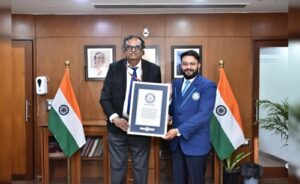Amartya Sen was the first person from India to receive the Nobel Memorial Prize in Economic Sciences in 1998. The Nobel Prize in Economics, officially known as the Sveriges Riksbank Prize in Economic Sciences in Memory of Alfred Nobel, was established in 1968 and is awarded for outstanding contributions to the field of economics.
Birth: Amartya Sen was born on November 3, 1933, in Santiniketan, West Bengal, India. He comes from a family with strong intellectual roots, and his early education was marked by exposure to progressive ideas.
Education: Sen studied at Presidency College in Kolkata and then went on to study at Cambridge University in the United Kingdom, where he earned his Master’s degree and later completed his Ph.D. at Trinity College, Cambridge.
Awarded for Contributions to Welfare Economics: Amartya Sen was awarded the 1998 Nobel Memorial Prize in Economic Sciences for his contributions to welfare economics and his work on social choice theory, poverty, and famine. His work focused on the relationship between economic theories and social justice, and how these can be applied to real-world problems.
Social Choice Theory: Sen made significant advancements in understanding how societies can make decisions that reflect individual preferences and lead to fair and just outcomes. He explored the limitations of traditional economic models that rely heavily on market efficiency, showing how individual well-being and societal choices must take into account inequality and justice.
Theory of Famine: One of Sen’s most influential works was on famine and its causes. In his seminal book, “Poverty and Famines: An Essay on Entitlement and Deprivation”, he demonstrated that famines are not always the result of food shortages but often arise due to inequitable distribution of food, economic deprivation, and political factors. His entitlement approach to famine analysis fundamentally changed how economists view hunger and poverty.
Human Development and Capabilities Approach: Sen is also known for his capabilities approach, which focuses on what individuals can do and be – their capabilities – as a way of measuring and understanding development, rather than just looking at economic indicators like income. This approach led to the creation of the Human Development Index (HDI), which is now used globally to measure a country’s development beyond just economic growth.
Human Development: Sen’s work laid the foundation for a more comprehensive understanding of human development, which considers both economic and social dimensions. His ideas influenced the United Nations Development Programme (UNDP) and were instrumental in shaping the Human Development Report and the Human Development Index (HDI), which are now widely used to assess global development.
Global Impact: Amartya Sen’s work on poverty, inequality, and human rights has had a lasting impact not only on economics but also on political philosophy, public policy, and development studies. He has also written extensively on issues related to democracy, freedom, and social justice.
Academia: Sen has held faculty positions at prestigious institutions, including Harvard University, Cambridge University, and Delhi School of Economics. His teaching and writing continue to influence scholars and policymakers worldwide.
Amartya Sen was awarded the Nobel Prize in Economics in 1998 for his pioneering work on welfare economics, poverty, famine, and social choice theory. His contributions have reshaped how economists and policymakers think about development, social justice, and economic well-being. As the first Indian to receive the Nobel Prize in Economics, his work remains influential in shaping global debates on poverty, human development, and inequality.







